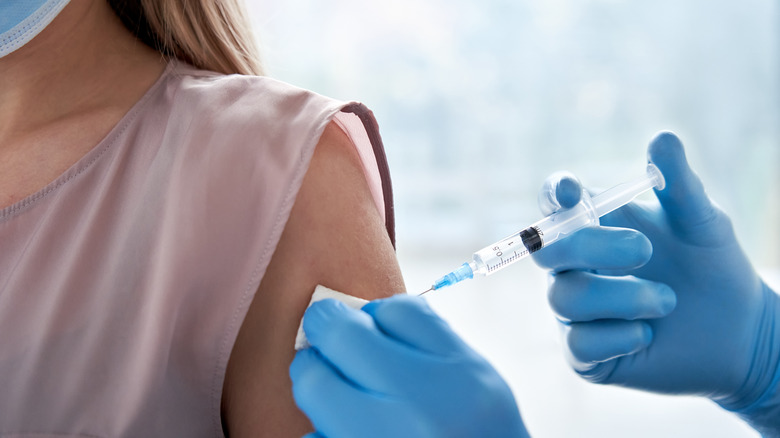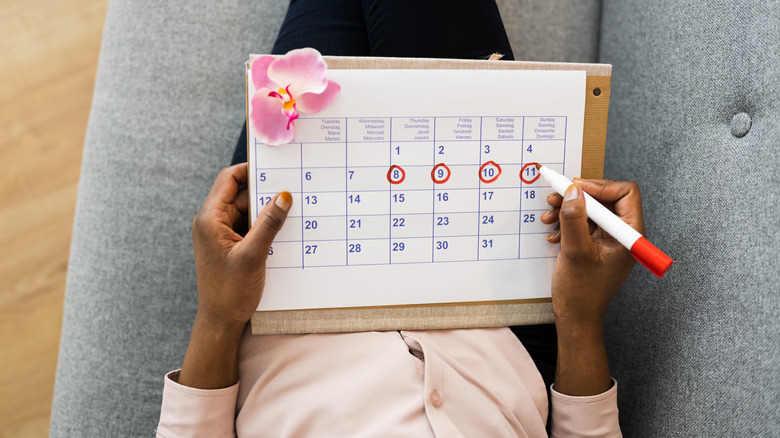How Does The COVID-19 Vaccine Impact Your Period?
For some, hesitancy to get vaccinated stems from concerns about the vaccine itself. The Centers for Disease Control and Prevention (CDC) and other world health leaders have made clear to the public the potential side effects, and that they are considered to be mild and temporary. However, according to a recent report made by lecturer in reproductive immunology Victoria Male in the British Medical Journal (BMJ), more than 30,000 women in the U.K. have self-reported changes to their menstrual cycle after vaccination.
Regardless of whether the vaccine received was from Pfizer, Moderna, or Johnson & Johnson, the reports included instances of unusually heavy menstrual flow, as well as late arrival of monthly periods (via Forbes). However, Victoria Male stated in her BMJ report that "Most people who report a change to their period after vaccination find that it returns to normal the following cycle." Medical professionals also state that vaccine effects on menstruation are not exclusive to the COVID-19 vaccine. Dr. Gemma Sharp, a senior lecturer at the University of Bristol, states via Forbes, "It is biologically plausible that vaccines can affect menstrual cycles through short term disruptions to the immune system." Sharp goes on to emphasize that this is characteristic of "all vaccines."
Side effects are short-lived
Though the reported side effects are temporary, such accounts have the potential to impact global vaccination rates if women decide against vaccination due to fears regarding fertility and pregnancy. But health experts stress that there is no conclusive evidence indicating that the COVID-19 vaccine poses a risk to women's reproductive health. As per CNN, vice president of the UK's Royal College of Obstetricians and Gynecologists Dr. Jo Mountfield encouraged vaccination among women stating, "There is no evidence to suggest that these temporary changes will have any impact on a person's future fertility, or their ability to have children. It is important to get vaccinated as the best protection against coronavirus. This is especially important if you are planning a pregnancy, as we know unvaccinated pregnant women are more at risk of becoming seriously ill from COVID-19." Still, health officials do encourage further research on the subject to combat vaccine hesitancy and allow women intending to receive the vaccine to plan for this potential side effect.


